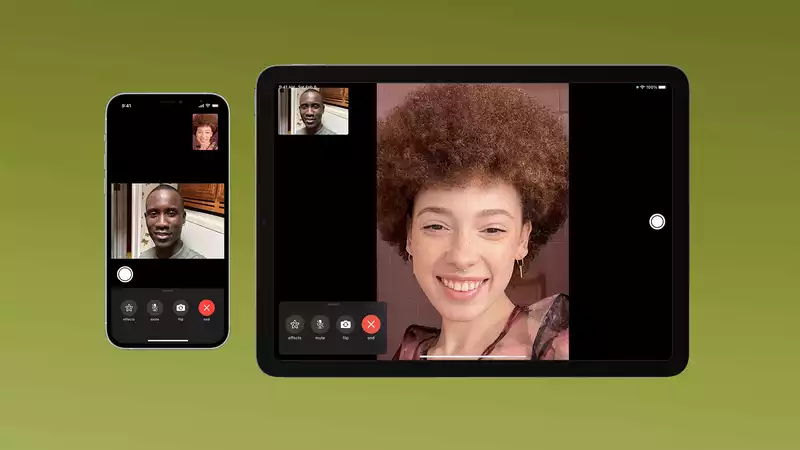During its WWDC 2021 keynote, Apple announced the unthinkable. For the first time, the company's proprietary video calling software, FaceTime, will be available on non-Apple devices
.
This is a big deal because Apple's system lock-in means that Apple software is rarely available on other devices. However, this is not a good thing, because seeing how FaceTime on Android and Windows actually works would seem to be a lazy move on Apple's part.
All we can say about this news is that Apple did not announce a new FaceTime app for Android or Windows devices. Instead, it is releasing a web interface for its video calling software that Android and Windows users can dial into and join. Reportedly, non-Apple users can only join pre-scheduled calls via a link, but cannot set up their own calls.
This is a minimal attempt to make FaceTime cross-platform, and I use the term "cross-platform" very cautiously. But this should not be a big surprise. Because Apple has always been very much against releasing software on other platforms.
In fact, the Windows and Google Play stores each have three Apple apps available for download: on Android, there is Apple Music, the Beats companion app, and the very self-serving "Move to iOS"; on Windows iTunes, iCloud, and Apple TV.
The Apple TV app is not available on Android, but is available on a wide range of other streaming devices. These include Apple's own Apple TV 4K, as well as Roku, Google TV with Chromecast, PS5, and Xbox Series X. Currently, the only way to watch Apple TV on Android is through a browser.
Perhaps this move is to encourage people to subscribe to Apple TV Plus, as well as to make Apple Music compatible with Android and browsers. Because there is no logical reason to keep the service's original content exclusive to Apple devices if there is other money to be made.
It is clear that this was not the case with FaceTime and iMessage. Both were free services and one of the main selling points to lock themselves into the Apple ecosystem. As the ongoing app store dispute with Epic Games has revealed, Apple itself has admitted as much.
In 2013, just two years after the launch of iMessage, Apple executives reportedly canceled a project that could have brought the service to Android devices. iOS head Craig Federighi, SVP of Software Engineering and Phil Schiller, head of the App Store, were very opposed to the idea, documents revealed.
Federighi said that making iMessage cross-platform would "simply [remove] an obstacle for iPhone families to get their children Android phones," and that making it "easier for someone to switch from our platform was quoted as claiming that it was a "terrible idea".
With this background, it is very easy to understand why FaceTime was not adapted in this way and developed into a full cross-platform app that users can download just as they would if they were using an iPhone or Mac.
This honestly seems like a half-hearted response to Epic Games' trial. Apple now says, "We don't lock all software onto our devices, we just don't want to be able to use it on our own devices.
Furthermore, this new web-based FaceTime comes 18 months after the COVID-19 craze made it essential for people and businesses to invest in video calling software. At this point, the market is essentially saturated, and Apple's half-hearted attempt to offer FaceTime to non-Apple users feels too little, too late.
If Apple really cared about bringing in non-Apple users, it would take the plunge and launch FaceTime as its own app on other platforms. Ideally, this app would give Android and Windows users exactly the same capabilities and freedoms that are given to iPhone, iPad, and Mac users.
Better yet, Apple is offering iMessage along with it. Video calling is great when you need it, but there is a reason why text messaging is so popular. It's easier, faster, and so much more convenient for casual conversations.
If Apple is willing to let users with other devices use FaceTime and enjoy all the privacy-oriented privileges that FaceTime offers, it should be a two-pronged approach. This is because there is little point in allowing users to communicate over a secure video channel, which would otherwise be communicated over a very insecure SMS.
The only alternative for cross-platform groups would be to use a completely different service. Doing so would automatically make those services more attractive in the long run and allow people to communicate using all different methods without having to swap apps or windows.
But I don't believe at all that Apple is even willing to consider such a thing.
.









Comments